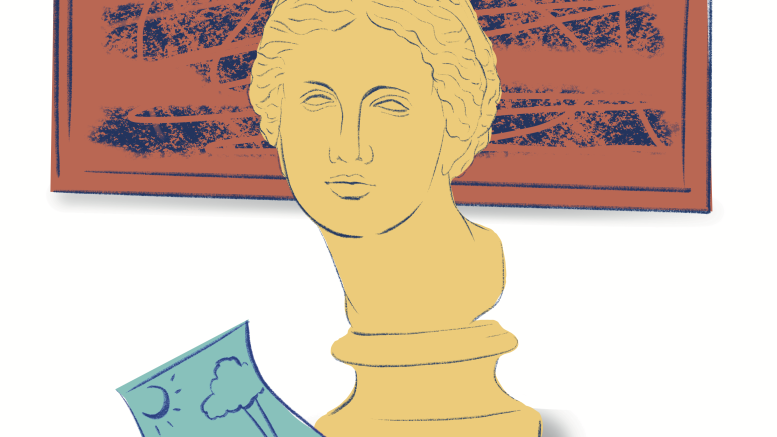Leonardo da Vinci was known for his science and art. He was the kid who had it all. This is not an article like the millions of other articles about the greatness of da Vinci. He is just an example to present the common debate about the significance of the arts. Leonardo da Vinci created the laws of physics and the “Mona Lisa.” He is one of the most celebrated figures in history. So, why does society scoff at the arts these days?
It is a common notion that arts and humanities are viewed as lesser than other fields of study. If you go back to the Renaissance, an opposite notion would exist.
Some dismiss the arts as just a hobby, while others believe a university degree is worthless and artists should use inspiration to create.
Are art degrees just a piece of paper? Do the arts not matter?
The monologue from Dead Poets Society conveys the richness of artistic endeavours, “but poetry, beauty, romance, love, these are what we stay alive for.”
Although this quote is meant to be focused on literary pieces, the emotion remains the same for other arts.
What if the ancient Egyptians never painted? We would not have acquired their beautiful, artistic and sensual myths and stories. If Georges Bizet did not compose, we would not have acquired the opera of Carmen. Without arts, I would not get the literary pieces of Rabindranath Tagore, the fashion of Vivienne Westwood or my favourite, Bollywood songs. This would not please me at all!
Arts are important to represent history and culture, whether it be as part of history or a prediction of the future. The paintings related to Christianity, the rock-cut architecture of Indian temples, the Sufi poetry, and the Shakespearian plays, show the importance of history.
The notion is that arts do not degrade you as a person. Artistry is a different form of intelligence. The arts are important for interpreting and expressing human emotions, to analyze and picture the past, the present and the future. You get to live the
fantasy through any medium.
I like to say that emotional intelligence and social intelligence develop as one creates art. Why? Because artists observe humans, their silent rage, their romance, their despair and their pride. These observations intertwine with your brush and pen to create the stories and representations. As Aristotle said, “Art not only imitates nature but also completes its deficiencies.”
If you have an interest in art, you are put in boxes. You are either a legacy or an outcast of the family. But why the stereotype? Art should be accessible everywhere and to anyone.
The irony is that everyone wants art and its knowledge to appear high-class. It seems more like an obsession with the classics to appear “cool.”
Art is to be displayed to signify wealth, but at the same time, young artists who pursue it face stereotypical condemnation.
My friends love to discuss music and how creative their interest is, but they would laugh at the one who pursues it professionally.
I wonder if art is just an ornament or a hobby. Why is the significance limited to the extracurricular? The anatomical drawings by Leonardo da Vinci have paved the way for medicine throughout time. So, why is pursuing arts not considered a good profession but rather a great hobby?
“I am an artist” and “I do some art in my free time” receive different reactions. Unless you create classics like the “Mona Lisa,” your art is undermined.
It is only if you are rich and amongst the elites that your art is accepted or at least acknowledged, irrespective of its beauty. But not everyone is rich and can climb up the ladder. Some artists never become professional artists, and their artwork exists in their own space only.
If art vanishes, we all would be reduced to creatures of existence, and we would fail to live, build, create and cherish anything and everything.



